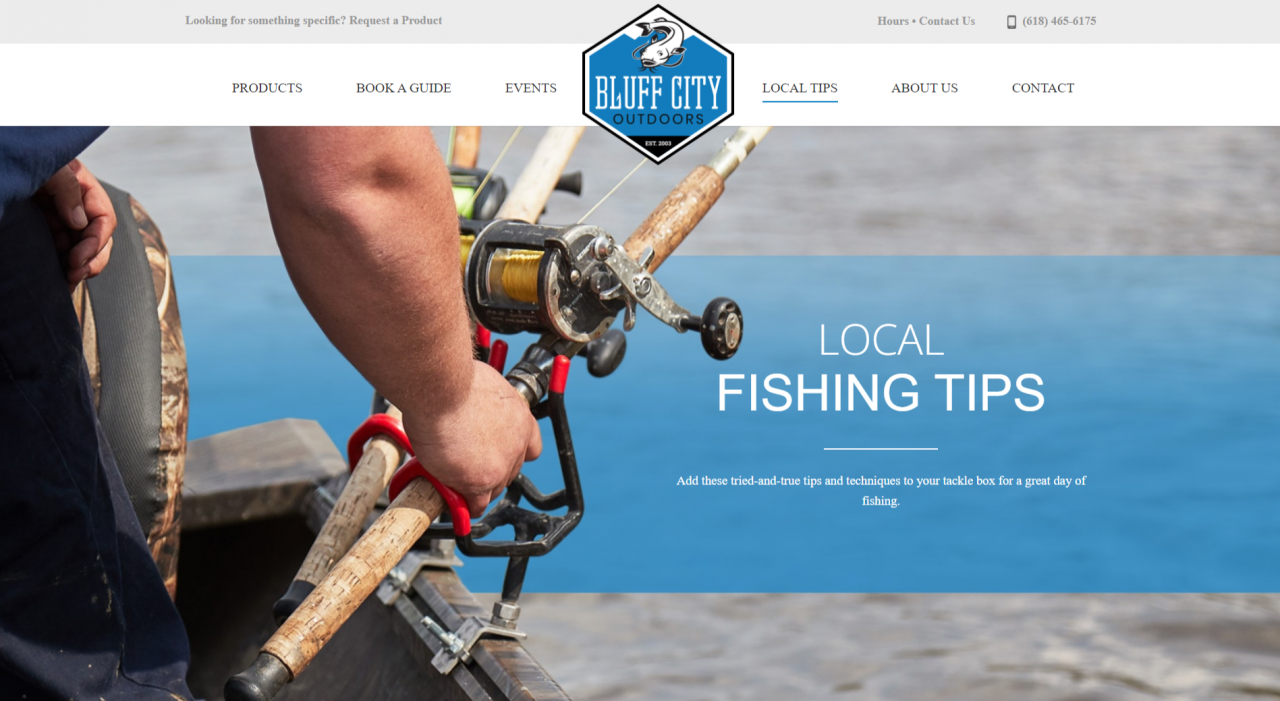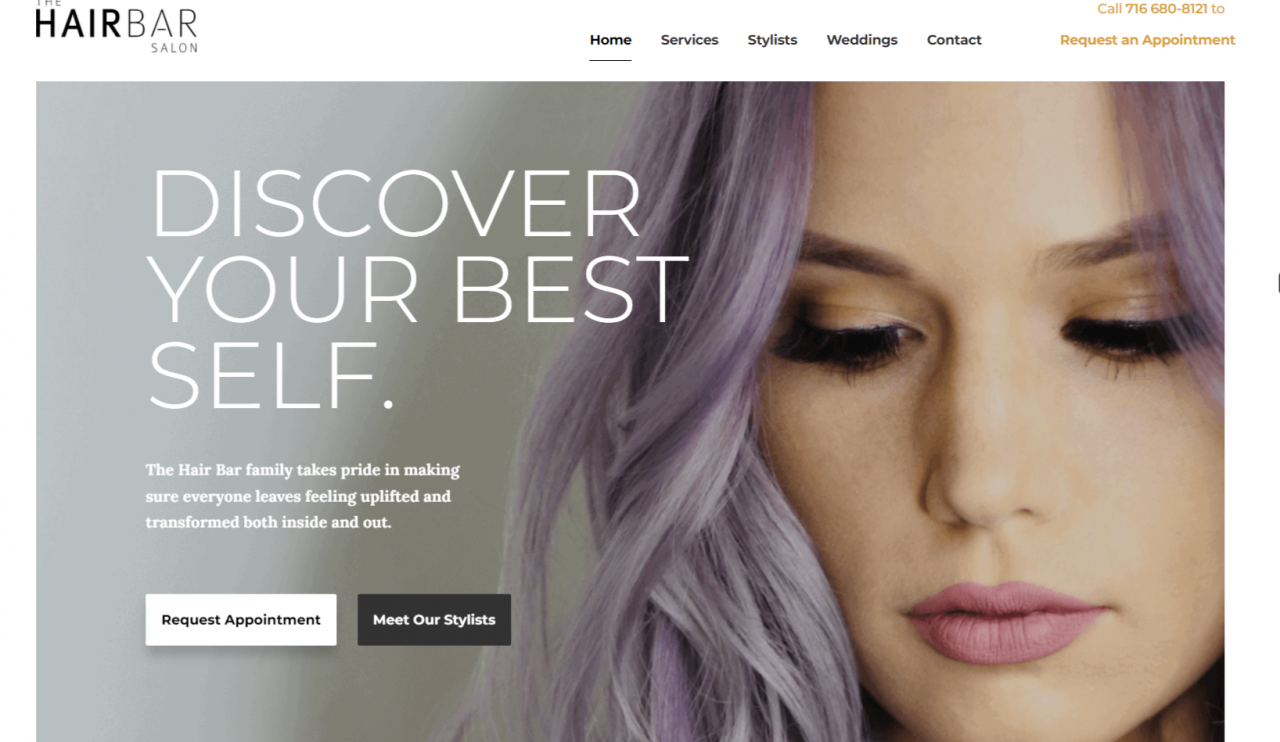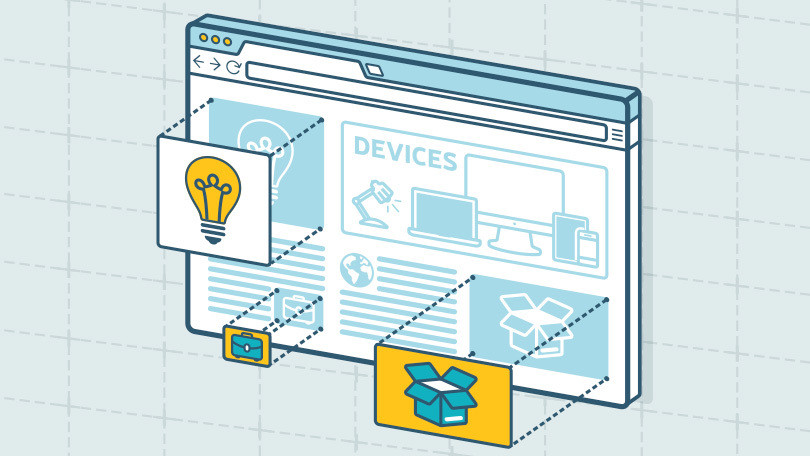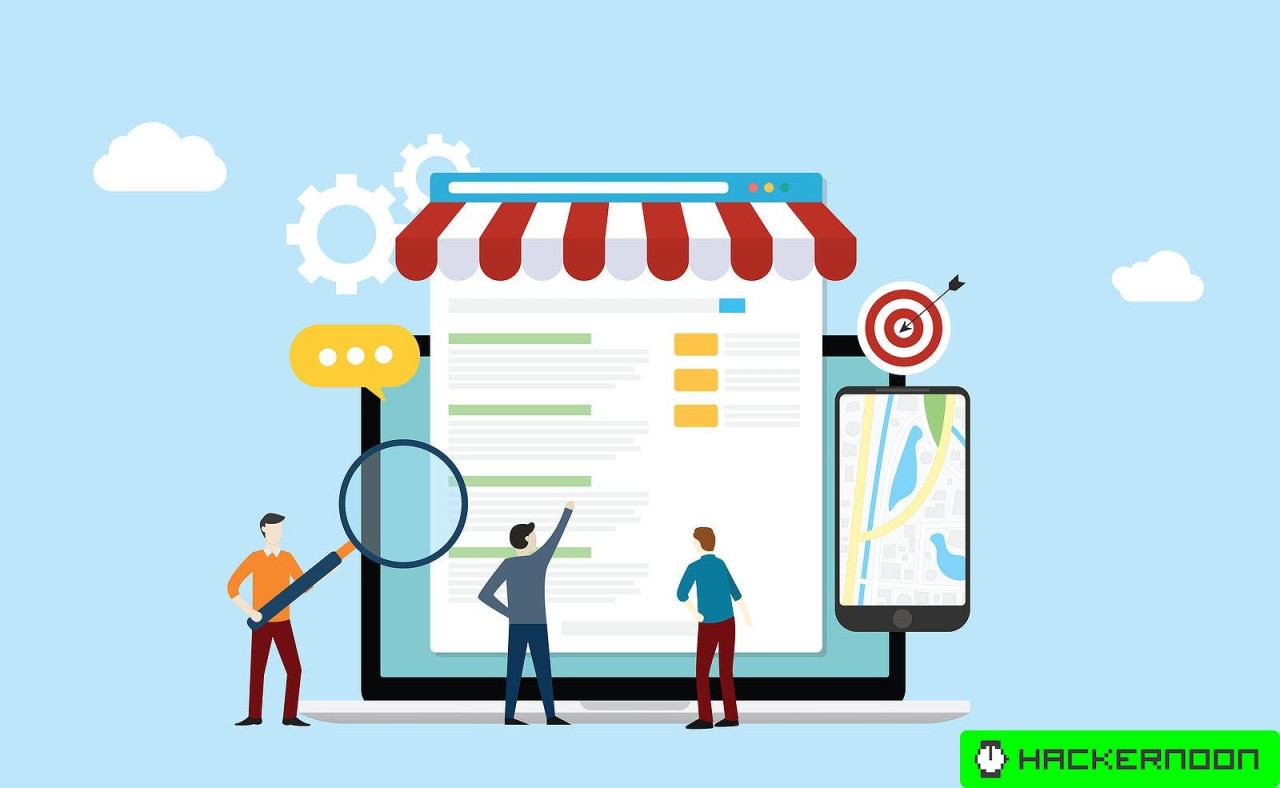How a small business can benefit from an online presence
There are compelling reasons for many to establish an online presence. Here are some of the main reasons why small businesses benefit from being online: having an online presence is critical to small business success. According to small business website statistics, 36% of small businesses do not have a website, while 81% of consumers research products or services online before purchasing. These numbers demonstrate the importance of small businesses investing in a website to reach and engage with their target audience.
What is an online presence?
An online presence is all the collective information and content about your business across the internet. In other words, an online presence defines how easy it is to find a business online.
For example, your business's local listings, social media accounts, website pages, search ads, and any other digital marketing channels are all a part of your online presence. Having a strong online presence means that your business can be easily found on digital platforms. We'll talk about why that's so important next.
Why you need a (great) online presence
Your online presence is crucial to your business. You must manage your online presence in order to grow your business, look legitimate, increase sales, establish your brand, and boost your marketing. Let's take a closer look at why having an online presence matters so much for your business:
It adds legitimacy to your business
When people search online for the types of services and products you provide, they should be able to find you. Before consumers decide to buy something from you, they're going to look online to learn more about your business.
In fact, 62% of consumers will disregard a business if they can't find them online and 83% of U.S. shoppers have said that they use online search before visiting a store. If they can't find enough information about your business, they may choose a competitor that has a stronger online presence and brand reputation.
Key Finding: Small Business Website Statistics
- 71% of small businesses have their own website.
- 75% of consumers judge a business's credibility based on their website
- 81% of shoppers research a business online before making a purchase.
- Small businesses with websites grow 2X as fast as those without.
- 48% of people said that the number one factor they used to determine a business's credibility was their website design
Key Finding on Small Business Marketing Statistics & Trends
- 69% of small businesses use digital marketing to attract customers and sales.
- 36% of small businesses don't have a website still.
- 96% of small businesses say they use social media in their marketing strategy.
- 61% of marketers say their biggest challenges are generating traffic and leads.
- Only 10 of the small business do not use any type of marketing.
- 17% of small businesses are investing in search engine optimization.(SEO)
- 47% of small business owners run marketing entirely on their own.
- 74% of consumers rely on social media to guide purchasing decisions.
- 41% of local businesses depend on social media to drive revenue.
- 46% of all searches on Google have local intent
- 81% of shoppers research online before purchasing.
Some of the numerous benefits of online presence are
However, it's important to note that while the internet offers many advantages for businesses, it also comes with its own set of challenges, such as cybersecurity threats, increased competition, and the need for continuous updates and learning. Businesses should weigh these considerations and tailor their online strategies accordingly.
- Reach a Wider Audience: The internet provides a platform for businesses to reach a global audience. Even if a business serves a local community, many people use search engines to find local services.
- Increased Accessibility: Customers can access online businesses at any time of day or night. This provides added convenience for potential buyers.
- Cost-Effective Marketing: Digital marketing strategies, such as search engine optimization (SEO), pay-per-click (PPC) advertising, and social media marketing, can be more targeted and cost-effective than traditional forms of advertising.
- Build Credibility: Today, many consumers expect businesses to have an online presence. A well-designed website or active social media profile can lend credibility and professionalism to a business.
- Engage with Customers: The internet provides opportunities for businesses to engage with customers in real-time, whether through social media, email marketing, or online reviews.
- E-Commerce Opportunities: Many small businesses have taken advantage of e-commerce platforms to sell their products or services online. This diversifies revenue streams and allows businesses to tap into a broader customer base.
- Collect Data: Online platforms offer tools for businesses to collect data about their customers' preferences, behaviors, and demographics. This data can be invaluable for making informed business decisions.
- Compete with Larger Businesses: A strong online presence allows small businesses to compete on a more level playing field with larger competitors, particularly when it comes to visibility.
- Flexibility: Online businesses can adapt quickly to changes, whether they are trends in consumer behavior, shifts in the market, or global events like the COVID-19 pandemic.
- Community Building: Online platforms, especially social media, allow businesses to build and nurture a community around their brand. Engaged communities can lead to loyal customer bases and more word-of-mouth referrals.
- Digital Tools: The internet provides access to a multitude of tools and platforms that can aid in business operations, from online booking systems to customer relationship management software.
- Environmentally Friendly: Operating online can reduce the need for physical materials like paper and reduce the carbon footprint associated with brick-and-mortar operations.

How a small fishing equipment store built its brand thanks to its online presence - Blog

Brilliant Restaurant Website Designs to Copy in 2023 by WordStream - Blog

Optimonk: 14 Ecommerce Case Studies to Inspire You - Blog
How business like auto mechanic, hairstyle salon and others which cant sell products and services online should to be on the Web?
Even businesses like auto mechanics, hair salons, may not conventionally sell their primary products or services online, can benefit from having a web presence. Here's why:
- Discoverability: Many customers use search engines to find local services. For instance, someone may search for "auto mechanic near me" or "best hair salon in [city name]". If a business doesn't have a web presence, it might miss out on these potential customers.
- Online Appointments: While a hair salon or auto mechanic might not sell products online, they can offer online appointment booking, making it more convenient for customers and helping streamline operations.
- Showcase Work: A hair salon can post before-and-after photos. A home-based craft business can showcase its products. This builds credibility and attracts customers.
- Reviews and Testimonials: Many people rely on online reviews when choosing a service. Having a web presence, whether it's a Google My Business page, a Yelp listing, or a Facebook business page, allows happy customers to leave positive feedback, which can attract new clients.
- Information Sharing: An online presence allows businesses to share critical information such as operating hours, location, contact details, pricing, and any promotions or special offers.
- Engagement: Social media platforms allow businesses to engage with their customers, answer queries, get feedback, and make announcements.
- Build a Brand: Having a consistent online brand—whether through a website, social media, or other platforms—helps in building brand recognition and loyalty.
- Competitive Edge: If competitors are online and a particular business isn't, that business is at a disadvantage. Being online can give a competitive edge or at the very least, level the playing field.
- Expand Market: A home-based craft business, for instance, might find that there is interest in their products from places they hadn't considered. With an online presence, they can tap into broader markets, even international ones.
- Email Marketing: Even if direct sales are not conducted online, businesses can collect email addresses (with consent) to send out newsletters, promotions, or updates to keep their clientele informed and engaged.
- Learning Opportunities: Being online exposes business owners to a wealth of knowledge and potential partnerships. They can learn fro
- Information Sharing: An online presence allows businesses to share critical information such as operating hours, location, contact details, pricing, and any promotions or special offers.
- Addressing Concerns: In the digital age, customers often turn to social media or business websites to voice their concerns or issues. Having an online presence allows businesses to address these concerns promptly, maintaining good customer relations.
How to establish online presence
A small auto mechanic business can leverage the web to bring in new customers in several strategic ways. Here's a step-by-step guide on
Establish your overall goals First, start by thinking about your overall marketing goals and objectives. What do you want your business's online presence to accomplish?
A well-designed, user-friendly website that effectively communicates the business's values, services, and unique selling propositions can significantly impact brand perception.
Consistent Branding:
Use consistent logos, colors, and messaging across all digital platforms (website, social media, Google My Business, email marketing, etc.). Consistency helps reinforce brand recall.
Content Marketing:
Regularly publishing valuable content such as blog posts about car maintenance tips, how-to guides, or industry news can position the business as an authority in the field.
Engaging Social Media Presence:
Actively engage with followers on platforms like Facebook, Instagram, and Twitter. Share behind-the-scenes content, customer testimonials, and informative videos. Regular and engaging posts can keep the brand top-of-mind for followers.
Google My Business (GMB):
A well-optimized GMB listing with photos of the shop, services, and customer reviews can make a lasting impression on potential customers searching for local auto mechanic services.
Online Reviews:
Encourage satisfied customers to leave positive reviews on platforms like GMB, Yelp, and Facebook. Positive reviews enhance the brand's reputation.
Collaborations and Partnerships:
Collaborate with local influencers or complementary businesses for joint promotions or content sharing. For instance, a partnership with a local auto parts store can be beneficial for both brands.
Paid Advertising:
Invest in targeted ads on platforms like Google Ads or Facebook Ads to increase visibility. Remarketing campaigns can also remind users of the brand after they've visited the website.
Engage in Local Online Communities:
Participate in local online forums or community groups, offering advice or answering questions related to auto issues. This positions the brand as a helpful and trusted local expert.
Email Marketing:
Regular newsletters with updates, promotions, and valuable information can keep subscribers engaged with the brand.
SEO (Search Engine Optimization):
By optimizing the website and content for relevant keywords, the business can rank higher on search engines, making it more likely for potential customers to encounter the brand during their searches.
Promotions and Giveaways:
Online promotions, discounts, or giveaways can generate buzz and get more people talking about and engaging with the brand.
Building brand awareness is a continuous process, and it requires consistent effort. But the rewards in terms of customer loyalty, trust, and increased business are well worth the investment. Over time, as brand awareness grows, the auto mechanic business can enjoy the benefits of being a preferred choice among local consumers.

CASE STUDY: Hair salon’s unique style by Deluxe - Blog

Small Business and Web: River Pools and Spas - Blog
Examples of other small business industry
"Downtown Joe's Barbershop":
Business Model: Traditional barbershop offering haircuts and shaves.
Online Strategy: Created a website featuring a gallery of hairstyles, an online appointment booking system, and a blog that offers grooming tips. They're active on Facebook, where they post before-and-after photos and engage with customers.
Outcome: Increased foot traffic with many customers referencing online hairstyle photos during their appointments.
"Paws & Play Dog Training":
Business Model: Offers dog training classes and obedience camps.
Online Strategy: Uses YouTube to share success stories, training tutorials, and testimonials. Their website includes a blog about dog behavior, training tips, and puppy care. They also engage with their community on Twitter, answering questions about challenging dog behaviors.
Outcome: Classes are booked weeks in advance, with many customers mentioning the helpful videos and blog posts as the reason they chose Paws & Play.
Sunny Day Care Center":Business Model: Provides childcare and preschool services.
Online Strategy: Maintains a website with photo galleries of their facilities, event calendars, and parent testimonials. They have a private Facebook group for parents to receive updates, share pictures, and host webinars about child development.
Outcome: Enrollment rates increased, with parents mentioning the transparency and community engagement as major decision factors.
"Tina's Tango Dance Studio":Business Model: Offers dance classes and studio rentals.
Online Strategy: Uses YouTube to post dance demos, student showcases, and instructional snippets. Their Instagram features short clips from classes and stories promoting upcoming events.
Outcome: New enrollments surged, with many newcomers mentioning the YouTube demos as their introduction to Tina's Tango.
"Heritage Bed & Breakfast":Business Model: Operates a bed and breakfast in a historic home.
Online Strategy: Uses Instagram to post images of their rooms, gourmet breakfasts, and the surrounding scenery. Their website offers a virtual tour of the property and a blog about local attractions.
Outcome: Occupancy rates went up, especially during off-peak seasons, due to increased online visibility.
"Peak Performance Gym":Business Model: A local gym with personal trainers and group classes.
Online Strategy: Utilizes Twitter to share fitness tips, exercise regimens, and member success stories. They host weekly Q&A sessions about nutrition and workouts, and regularly share member testimonials on their website.
Outcome: Membership numbers grew, and there was increased participation in specialty classes promoted online.
"Waterfront Wedding Venues":Business Model: Rents out a venue space for weddings and events.
Online Strategy: Pinterest boards featuring past weddings, decor ideas, and event themes. Their website contains a booking calendar, virtual tours, and a gallery of professional photos from previous events.
Outcome: Bookings for weddings and events increased, with many clients referencing the inspiring Pinterest boards during consultation.
"Artisan Café & Bakery":Business Model: Serves handcrafted coffee, baked goods, and light meals.
Online Strategy: Daily Instagram posts showcasing their special items, behind-the-scenes bakery operations, and customer testimonials. They also use Google My Business for location, reviews, and menu updates.
Outcome: Foot traffic and daily sales increased, with a notable number of customers ordering the specials they saw posted online.
These case studies demonstrate the diverse ways businesses can leverage online platforms to boost their brand awareness, engage with their communities, and ultimately drive more business. Even without selling products directly online, the internet offers numerous avenues for growth and brand-building.

Small Business Websites and Marketing Statistics 2023 by BusinessDIT - Blog

Top 10 reasons why every business needs an internet presence - Blog

16 reasons why your business needs a website - Blog

Blendtec - A great example of building a strong online presence and brand awareness - Blog

How a small fishing equipment store built its brand thanks to its online presence - Blog
When you subscribe to the blog, we will send you an e-mail when there are new updates on the site so you wouldn't miss them.



